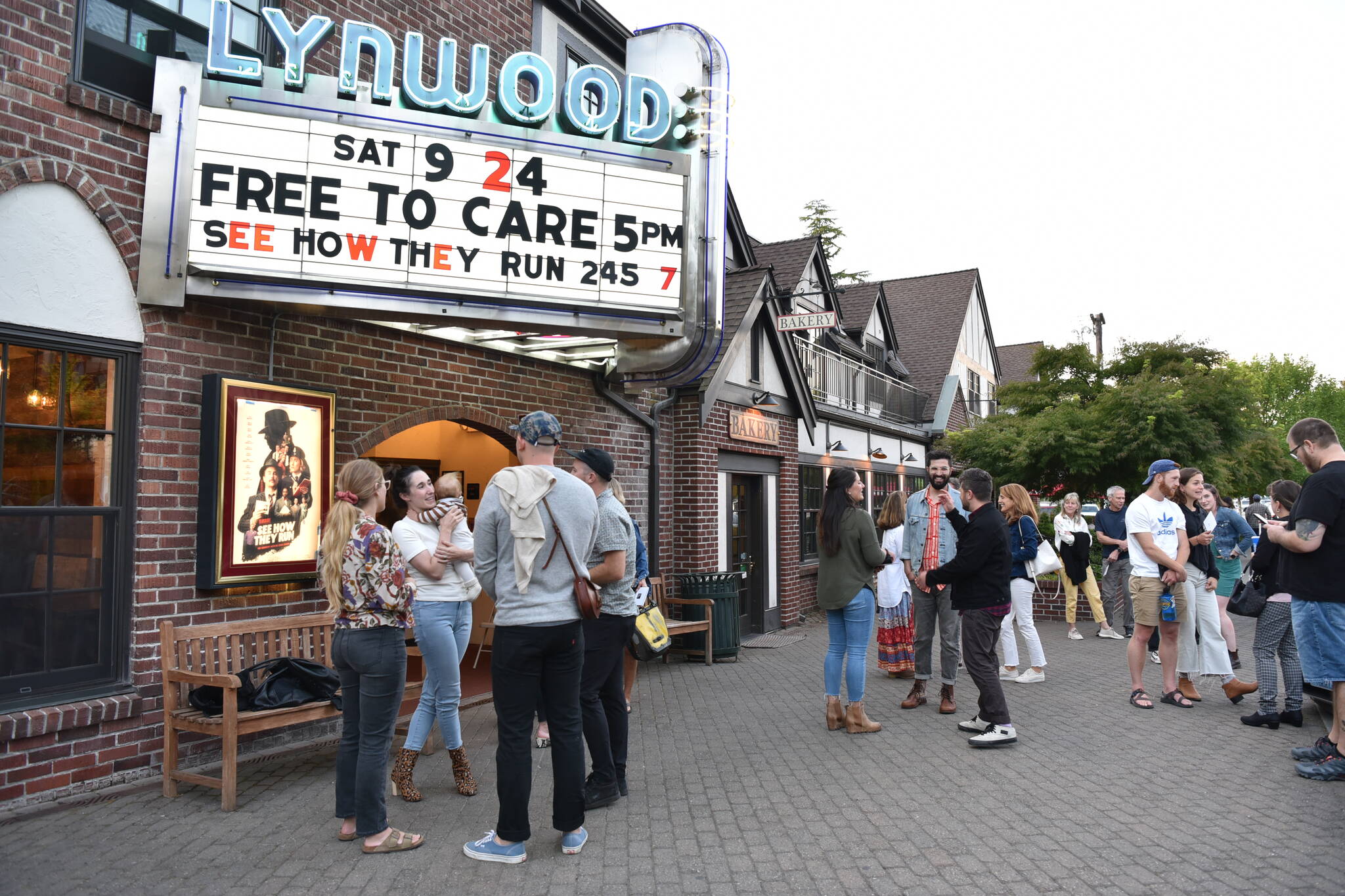Filmmakers Zach Ingrasci and Chris Temple returned to Bainbridge Island last month to premiere their latest film, “Free To Care,” at the Lynwood Theatre.
They are celebrating 10 years of making documentaries about complex issues that have helped raise over $90 million for nonprofits that work with communities featured in their films.
Telling complex stories is what pushes Ingrasci and Temple to go outside their comfort zone seeking the connections that lead them to the people and stories they tell that have been changing lives, minds and policy.
Before the film premiere, Ingrasci visited with Woodward Middle School students during their first assembly in two years due to COVID and spoke about connection, compassion and integrity.
“If you’re like me and you watch the news today, you see the wars that are going on, and see the refugee crisis, the immigration stories and all these heartbreaking things. It can feel like the world isn’t necessarily good, right? It can feel like there’s a lot of darkness out there, and it can be completely overwhelming,” Ingrasci said. “The reality is…despite my work taking me to some of the darkest situations in the world, I still feel like an optimist.”
Ingrasci said he is an accidental filmmaker. “My journey started in an assembly just like this one,” when he learned that 1.1 billion people live on less than $1 a day. It was an unimaginable reality that created a “Wait? What!” moment and compelled him and three friends to spend two months of college in Peña Blanca, a little rural village in Guatemala.
“We were going to go and live on less than one dollar a day by ourselves for two months,” Ingrasci said.
They found a little house, cooked their food over a fire and slept on a mat on a dirt floor. Then a couple of kids started watching the four “gringos trying to survive in the community, acting like fools,” Ingrasci said.
Those kids were their first connections to a whole different world and how they met Chino who was featured in their first film.
Chino was from a family of eight who lived in a single room and could not afford electricity, but he was always around and eager to help Ingrasci and his friends.
Later, Ingrasci was shocked to learn that Chino’s family couldn’t afford the $25 expense for books and supplies to send him to school. “I completely saw myself in a lot of them and realized that it’s the situation that they’re in that’s holding them back, not who they are.”
Ingrasci challenged the BI students to listen for their “Wait? What!” moment and encouraged them to use their resources to take action. “It’s people just like you that have done something about the problems in the world. Your teachers are there to help you on your journey of figuring out how you’re going to give back to the community and how you’re going to live up to the principles of connection, compassion and integrity.”
At the premiere of “Free to Care,” Optimist co-founder Chris Temple explained that their goal is to inspire individual actions around each film and to encourage others to join them on the journey of optimism. “It’s so easy to get into the apathy of pessimism, to believe that it’s all so overwhelming that we can’t do anything,” Temple said. “These small efforts can make a huge impact in somebody’s life.”
After making the film “Rosa – These Storms,” Temple set up a scholarship fund to help Rosa get through nursing school, which raised more than $100,000 for other women to go to college. “That’s the power of film. You can inspire action and help people,” Temple said.
Temple hopes that “Free to Care” will inspire criminal justice reform in Washington.
State Rep. Tarra Simmons of the 23rd Legislative District was on a panel discussion. “I saw myself in all of them,” said Simmons, who recounted her own childhood growing up in extreme poverty, being exposed to violence and being trafficked as a young girl, which eventually led to her incarceration later on in life.
Simmons explained that when she was released from prison nine years ago, she wanted to resume her nursing career, but her felony record prevented her from getting a job. With encouragement from law students she met in prison, she decided to go to law school to change the laws that prevented her from being a nurse. After graduating from Seattle University School of Law with honors, the State Bar prevented her from taking that exam, due to her felony. Eventually, the state Supreme Court decided in favor of Simmons.
Simmons still has six felonies on her record and next year, she’ll be able to expunge her record. “I’ll be able to rent an apartment. I will be able to volunteer at my kid’s school, and be the executor of a grandparent’s estate when they’re dying. All the things I’m not allowed to do right now,” she said.
This is a national issue as one in three Americans has a criminal record that prevents them from moving on with their lives after incarceration.
“It’s entrenched in the culture,” Temple said. “Meeting you (Simmons) has changed entirely the way that I think about criminal justice and how to have restorative justice in this country.”



